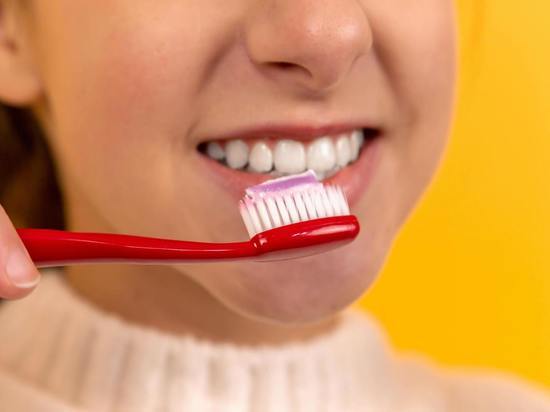Scientists have found that bad teeth are one of the causes of dementia
[ad_1]

There is no cure for dementia (senile dementia) yet, but there are many ways to prevent it. Of course, this is, first of all, a healthy lifestyle: proper nutrition, movement and the absence of bad habits. Curiously, but now this list has been replenished … with proper brushing of teeth! At least that’s the conclusion reached by Finnish scientists who analyzed 47 global studies that studied the relationship between disease or missing teeth, as well as gum disease. The connection turned out to be so direct that scientists advise taking care of your teeth from a young age.
Recall that dementia is a syndrome characterized by a progressive decline in cognitive abilities and functional disability. More than 50 million people worldwide suffer from dementia, and with an increasing aging population, the prevalence of dementia is expected to triple by 2050. There are also less severe cognitive impairments, such as mild cognitive impairment, the prevalence of which varies significantly in different populations from 5% to 41%.
There have been many studies in the world that have shown that cardiovascular diseases, smoking, and unhealthy diet lead to senile dementia. However, among the many risk factors for dementia and cognitive decline, oral health indicators such as periodontitis and tooth loss have only recently begun to be studied.
Periodontitis is an inflammation of the tissues supporting the tooth, which in severe cases leads to tooth loss. It affects about 10% -15% of the adult population of the planet. Periodontal health has been linked to various systemic diseases, even cardiovascular disease and diabetes.
“They say that all diseases are from nerves. But we can say that all diseases are from the teeth. More precisely, from improper care for them. Serious pathology of the gastrointestinal tract can be behind caries, and periodontal disease can become the first symptom of heart disease. Chronic inflammation in the mouth can lead to heart disease, pneumonia, arthritis, and even miscarriage. Periodontitis can become a trigger for the development of atherosclerosis, diseases of the joints, ENT organs, kidneys, complications of diabetes, sepsis, and many others. People with periodontal disease are at twice the risk of heart disease and its complications: stroke and heart attack; scientific studies have revealed horrific data: plaque bacteria were found in the composition of atherosclerotic plaque, ”says dentist Ilya Ovchinnikov.
And now dementia has been added to this list. According to scientists, periodontitis, tooth loss, deep periodontal pockets or loss of the alveolar part of the jaws are associated with a 23% increased risk of cognitive decline and a 21% increased risk of dementia. This is stated in the review Periodontal Health, Cognitive Decline and Dementia. Scientists note that there is more and more evidence in favor of the fact that poor periodontal health negatively affects cognition. They reviewed nearly five dozen studies linking poor periodontal health and tooth loss with memory loss, cognitive decline, and dementia. The analysis showed that tooth loss increases the risk of cognitive decline and the development of senile dementia.
The studies lasted from 7 to 13 years and affected both men and women. Twenty studies have reported a significant association between at least one measure of periodontal health and cognitive decline, i.e. a higher risk of cognitive decline in people with low dentition, more extractions, periodontitis, deeper periodontal pockets, or alveolar bone loss. Eighteen studies showed a significant association between at least one measure of periodontal health and dementia. And another 10 papers showed a significant link between low dentition and dementia.
Now the fun part: how can all of this be connected? That is, why exactly do bad teeth impair memory and cognitive function in the body? One of the versions: periodontitis contributes to the development of neuroinflammation (that is, inflammatory processes in the brain) through systemic inflammation. The latter is an independent factor in the deterioration of cognitive functions and leads to diabetes, hypertension, hypercholesterolemia and accelerated aging. But there is another version: cognitive function is directly affected by periodontal pathogens, that is, special infectious agents that impair mental abilities.
However, that’s not all. Loss of teeth can also impair cognitive abilities by reducing the sensorimotor stimulation of the masticatory apparatus, which is associated with atrophic changes in the brain. And the number of lost teeth does matter. Moreover, non-traumatic and non-surgical causes of tooth loss (eg, caries and periodontitis) result in gradual and progressive tooth loss over decades, which is more likely to result in cognitive decline.
Curiously, low levels of education increase the risk of early tooth loss, which may reduce the periodontal inflammatory burden and its subsequent impact on mid-life cognition. In addition, nutritional imbalances and reduced cerebral blood flow may also be associated with tooth loss and cognitive decline. As they say, everything in this world is interconnected.
The conclusion of scientists is very trivial: it is necessary, it is necessary to brush your teeth in the mornings and evenings. Keeping them healthy, you also take care of a clear mind in old age.
Meanwhile, as the Dental Association of Russia notes, there are a lot of people in Russia who … don’t brush their teeth at all. In addition, according to the association, more than 50% of people brush their teeth for 46 seconds, which is absolutely useless. It’s like rinsing a greasy pan with cold water. Cleaning should last at least 2, and preferably 3 minutes. At the same time, almost no one knows that the upper teeth should be cleaned separately from the lower ones.
[ad_2]
Source link








